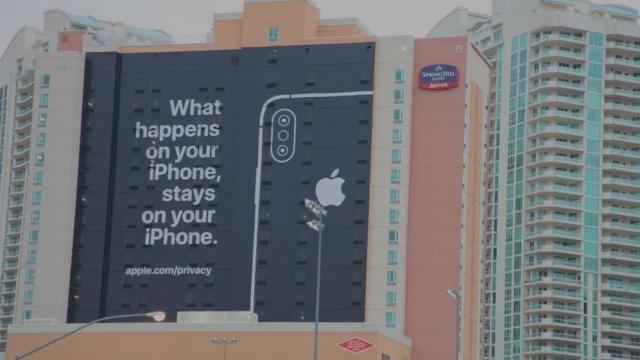No one who understands tech products work will be surprised to learn that Apple collects analytics data about how you use your iPhone. But a lot of people were surprised to learn that Apple collects that data even when the company’s own privacy settings promise not to. So surprised, in fact, that they filed lawsuits. Now Apple is facing a third class-action lawsuit over the issue, this time in New York state, marking the third legal action against the company over this data dilemma. The case asks for a cool $US5 ($7) million in damages.
If they gave out loyalty punch cards for lawsuits, Apple would be well on its way to a free class-action case.
At some point, Apple will defend its privacy practices in court. But so far, the company refuses to defend itself to Gizmodo, or any other media outlet. We’ve asked Apple about the problem on six separate occasions since Gizmodo exclusively reported on the problem last November. Apple didn’t respond, and still hasn’t said anything publicly about the issue. The text of the third lawsuit is nearly identical to that of the second.
Paul Whalen, the attorney suing Apple in the New York suit, told Gizmodo he’s worked on a number of high-profile data breach cases over the last 20 years, matters that often involve unintentional errors. This isn’t one of those cases, he said.
“Those data breaches happened in large part because someone made a mistake that shouldn’t have occurred,” Whalen said. “In this case, with Apple, there doesn’t appear to be a mistake. Apple knowingly promised one thing and did exactly the opposite. That is what makes this case feel so very different.”
The iPhone Analytics privacy setting says that it will “disable the sharing of Device Analytics altogether” when you turn it off. Apple’s analytics privacy policy goes onto say that “none of the collected information identifies you personally.” But when researchers from the software development company Mysk tested those claims, they found that neither was true.
Mysk’s tests showed that turning off the setting had no effect on analytics data sent from Apple apps, including the App Store, Apple Music, Apple TV, Books, and Stocks. That data includes detailed real-time information about everything you’re doing in certain apps, not only things you type or tap on, but even how long you spend on certain pages and which ads you see. In some cases this could pose a serious privacy concern. In the App Store, for instance, searches and downloads for specific apps can reveal anything from users’ sexual orientation to religion to sensitive health problems like addiction and substance abuse.
Despite Apple’s claims that the information isn’t identifiable, that data is transmitted with a permanent ID number tied to iCloud accounts, which links the data to your name, email address and phone number.
“At Apple, we respect your ability to know, access, correct, transfer, restrict the processing of, and delete your personal data,” reads the iPhone maker’s company wide privacy policy. When it comes to restricting the processing of your data, it appears that’s not true.
Not to mention Apple’s years-long, self-congratulatory privacy advertising campaign. The company has adorned gigantic billboards across the country with pithy phrases like “Your iPhone knows a lot about you. But we don’t.” According to the trio of lawsuits, that’s not the case.
